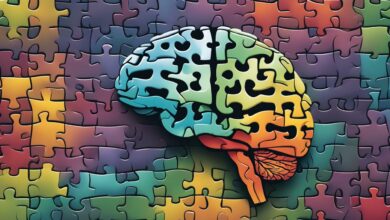Optimizing Men’s Health: Strategies for Well-Being

At Optimizing Men’s Health, we believe that men’s health is more than just treating illness or disease. It’s about taking a holistic approach to well-being, incorporating physical and mental health, nutrition, exercise, and preventative care to achieve optimal health. In this article, we will explore various strategies to optimize men’s health and well-being, addressing specific health concerns and providing solutions tailored to enhancing overall men’s health.
Key Takeaways:
- Men’s health is a holistic approach to well-being that encompasses physical and mental health, nutrition, exercise, and preventative care.
- Taking preventative measures, including regular health screenings, vaccinations, and adopting proactive health habits such as maintaining a healthy diet, managing stress, and avoiding tobacco and excessive alcohol consumption, is crucial to maintaining optimal men’s health.
- Regular check-ups are essential for early detection and preventative healthcare, including annual physical exams, blood pressure checks, cholesterol screenings, and other routine tests.
- Mental health is equally important as physical health, and strategies for stress management, promoting emotional well-being, and self-care practices can support overall mental wellness.
- A healthy diet and regular exercise are critical for men’s health, providing nutritional guidance tailored to men’s dietary needs and reducing the risk of chronic diseases.
Understanding Men’s Health Concerns
At Optimizing Men’s Health, we understand that men face various health concerns that need to be addressed for optimal well-being. In this section, we will outline some of the common health issues in men that should be given attention.
Heart Disease
Heart disease is a prevalent issue in men, and it is essential to maintain a healthy heart. Risk factors such as high blood pressure, high cholesterol, and smoking should be controlled with medication and lifestyle changes. The American Heart Association recommends regular exercise, a healthy diet, and regular check-ups to manage heart health.
Prostate Health
The prostate gland can cause several health issues in men, including enlargement, inflammation, and cancer. Regular prostate exams and screenings are essential for early detection and treatment. Men over 50 are advised to undergo a digital rectal exam and a prostate-specific antigen (PSA) blood test annually, while those with a family history of prostate cancer may need to start screening earlier.
Sexual Health
Sexual health is an integral part of overall men’s health, and problems such as erectile dysfunction can affect men’s quality of life. This issue can be caused by underlying health problems such as hypertension, diabetes, and depression. Seeking appropriate medical help is crucial to address underlying health conditions and improve sexual health.
Mental Health
Mental health is equally important as physical health, and it is essential to seek care when necessary. Men tend to avoid seeking help for mental health issues due to stigma and social norms, which can lead to worsening symptoms. Managing stress and practicing self-care activities such as exercise, meditation, and therapy can support men’s mental health and improve overall well-being.
Nutrition and Exercise
A healthy diet and regular exercise are critical for maintaining overall men’s health. Men have specific dietary needs that require sufficient protein, vitamins, and minerals. Exercise can help manage weight, reduce stress, and prevent chronic diseases. A combination of aerobic exercise and resistance training is recommended for optimal health results.
- Common health issues in men include heart disease, prostate health, sexual health, mental health, and the role of nutrition and exercise in maintaining overall well-being.
- Regular check-ups and screenings are essential for early detection and preventive healthcare in men.
- A healthy lifestyle, including a balanced diet and regular exercise, is crucial for men’s health and well-being.
Preventive Measures for Men’s Health
At Optimizing Men’s Health, we believe that prevention is the key to maintaining optimal health. Preventive measures can help detect health issues before they become serious and can even prevent them from occurring in the first place. Below are some of the most important preventive measures that men can take to ensure their well-being.
Regular Health Screenings
Health screenings are an essential component of preventive healthcare. They can help detect health issues early when they are most treatable. Men should undergo regular screenings for blood pressure, cholesterol, diabetes, and cancer, including prostate and colorectal cancer. We recommend that men discuss with their healthcare provider which screenings are appropriate for their age and medical history.
Proactive Health Habits
Adopting proactive health habits can also help reduce the risk of developing health issues. Men should aim to maintain a healthy diet, get regular exercise, and manage stress levels. Additionally, avoiding tobacco and limiting alcohol consumption can significantly improve overall health. At Optimizing Men’s Health, we provide nutritional guidance and exercise tips tailored to men’s health needs.
Early Detection
Early detection is critical to successful treatment of many health issues. It is essential to recognize symptoms and seek medical help as early as possible. Regular check-ups and screenings can help identify health issues before they become more serious. Men should also be aware of any changes in their body and seek prompt medical attention if they suspect a health issue may be present.
By prioritizing preventive measures, health screenings, and proactive health habits, men can take control of their health and reduce the risk of developing serious health issues. These practices can help ensure that men lead fuller, healthier lives. At Optimizing Men’s Health, we provide the information and resources necessary for men to optimize their health and well-being.
The Role of Regular Check-ups
Regular check-ups are crucial for maintaining optimal men’s health and early detection of potential health issues. At Optimizing Men’s Health, we recommend annual physical exams that include blood pressure checks, cholesterol screenings, and routine tests that monitor organ function and overall health. These check-ups allow healthcare providers to assess men’s health and identify potential health risks before they become serious concerns.
Preventive healthcare, including regular check-ups, can help detect health issues in the early stages when they are often easier to treat. We encourage men to take a proactive approach to their health by scheduling regular check-ups and working with their healthcare providers to develop a personalized care plan.
By prioritizing preventive healthcare, including regular check-ups, men can take control of their health and well-being while reducing the risk of developing serious health conditions. Early detection can also lead to more effective treatment options and better health outcomes.
Mental Health and Well-Being
At Optimizing Men’s Health, we recognize that mental health is just as crucial as physical health. Many men struggle with stress, anxiety, and other mental health concerns that impact their overall well-being. That’s why we want to emphasize the importance of prioritizing mental health and developing healthy coping mechanisms.
Stress Management
Stress can have a significant impact on mental and physical health. It’s important to develop effective stress management techniques to promote overall well-being. Our team recommends various strategies, including:
- Regular exercise
- Yoga or meditation
- Talk therapy or counseling
- Breathing exercises
- Journaling or other creative outlets
These strategies can help men manage stress and improve their emotional well-being. Remember, it’s crucial to find what works best for you and make it a regular part of your routine.
Self-Care
Self-care is essential for maintaining mental health. It involves taking time to prioritize your needs and engage in activities that promote well-being. Some examples of self-care practices include:
- Getting enough sleep each night
- Eating a healthy, balanced diet
- Scheduling regular check-ups
- Taking time for hobbies or activities you enjoy
- Engaging in relaxation techniques like bubble baths or massages
By prioritizing self-care, men can reduce stress and improve overall well-being. At Optimizing Men’s Health, we believe self-care is a critical aspect of maintaining optimal health and encourage men to make it a priority in their lives.
Nutrition and Exercise for Men’s Health
A healthy lifestyle that includes proper nutrition and regular exercise is essential for men’s physical and mental well-being. Men have unique dietary needs that vary based on factors such as age, body composition, and activity level. Proper nutrition can help men maintain optimal weight, support muscle health, and reduce the risk of chronic diseases.
At Optimizing Men’s Health, we recommend that men prioritize nutrient-dense foods, including:
- Lean protein sources such as chicken, fish, and plant-based proteins like beans and lentils
- Healthy fats like avocados, nuts, seeds, and olive oil
- Complex carbohydrates such as whole grains, fruits, and vegetables
It’s also important to limit consumption of processed foods, added sugars, and saturated and trans fats.
In addition to proper nutrition, regular exercise is crucial for men’s health. Engaging in physical activity can help men maintain a healthy weight, improve cardiovascular health, and boost mood and mental health. Men should aim for at least 150 minutes of moderate-intensity activity or 75 minutes of vigorous-intensity activity per week.
At Optimizing Men’s Health, we recommend a combination of aerobic exercise, strength training, and flexibility exercises for optimal health benefits. Some examples of these exercises include:
| Exercise Type | Examples |
|---|---|
| Aerobic | Brisk walking, running, swimming, cycling |
| Strength Training | Weightlifting, resistance band exercises, bodyweight exercises |
| Flexibility | Stretching, yoga, Pilates |
It’s important to note that men should consult with a healthcare provider before beginning a new exercise regimen, especially if they have any underlying health conditions or injuries.
Maintaining a healthy lifestyle that includes proper nutrition and regular exercise can help men achieve optimal health and well-being. At Optimizing Men’s Health, we are dedicated to providing resources and support to help men prioritize their health and achieve their wellness goals.
Sexual Health and Wellness
At Optimizing Men’s Health, we believe that sexual health is an essential component of men’s overall well-being. Male reproductive health, including erectile dysfunction, can significantly impact a man’s quality of life and self-esteem. Therefore, we provide resources and information to empower men to take charge of their sexual health and wellness.
One common concern in male sexual health is erectile dysfunction (ED). ED is a medical condition characterized by the inability to achieve or maintain an erection, and it affects millions of men in the United States. Causes of ED may include underlying medical conditions, such as heart disease or diabetes, psychological factors such as stress or anxiety, or medication side effects.
Our goal at Optimizing Men’s Health is to encourage men to seek appropriate medical help when experiencing erectile dysfunction or any other sexual health concerns. By discussing these concerns with a healthcare provider, men can receive proper diagnosis and treatment, which may include medication, therapy, or lifestyle changes.
In addition to seeking medical help, there are several strategies men can use to maintain sexual wellness. Communication with sexual partners is paramount in establishing a healthy sexual relationship. Safe sexual practices, such as using condoms, can protect against sexually transmitted infections.
It is also essential to prioritize self-care practices to support sexual health. Stress management techniques, such as mindfulness or meditation, can reduce anxiety and promote relaxation. Adequate sleep and regular exercise can improve overall health and well-being, including sexual health.
At Optimizing Men’s Health, we strive to provide comprehensive resources and information to support men’s sexual health and wellness. We prioritize the importance of seeking appropriate medical help and adopting self-care practices to maintain sexual health and overall well-being.
The Role of Regular Check-ups in Healthy Aging and Longevity
Regular check-ups are essential in maintaining optimal health and detecting potential issues early. As men age, specific health concerns may arise, and regular check-ups can help address age-related health concerns. These check-ups, including annual physical exams, blood pressure checks, and cholesterol screenings, allow healthcare providers to monitor men’s health and detect potential issues before they become more severe.
Additionally, routine screenings for prostate cancer and other diseases become increasingly important as men age. These screenings can help detect cancer and other illnesses in their early stages, giving healthcare providers more time to provide effective treatments.
Preventive care measures can also help enhance healthy aging and longevity. Vaccinations, such as the flu vaccine, can reduce the risk of illness and complications, which can lower the risk of hospitalization and improve overall health outcomes. Proactive health habits, such as exercise and healthy eating, can also promote healthy aging by maintaining a healthy weight, reducing the risk of chronic diseases, and improving cognitive function.
Addressing age-related health concerns such as prostate health, cardiovascular health, and managing chronic conditions can help men live longer and healthier lives. Regular check-ups, preventive healthcare measures, and lifestyle changes can all play a significant role in promoting healthy aging and longevity.
Conclusion
At Optimizing Men’s Health, we believe that achieving and maintaining optimal men’s health is a holistic approach that requires addressing various factors. By understanding the specific health concerns that men face and prioritizing preventive measures, regular check-ups, mental health, nutrition, exercise, and sexual well-being, men can lead fuller, healthier lives.
Our mission is to provide men with the necessary resources and information to make informed decisions about their health and well-being. From educational articles to expert guidance on specific health concerns, we strive to empower men to take charge of their health and prioritize their well-being.
We understand that optimizing men’s health is not a one-size-fits-all approach. Still, by engaging in proactive health habits, regular check-ups and screenings, and addressing specific health concerns, men can enjoy a healthier, more fulfilling life.
Thank you for joining us on this journey towards better health and well-being. Remember, optimal men’s health is achievable, and we are here to support you every step of the way.
FAQ
Q: What are the common health issues in men?
A: Common health issues in men include heart disease, prostate health, sexual health, and mental health concerns.
Q: What preventive measures should men take for optimal health?
A: Men should focus on regular health screenings, vaccinations, maintaining a healthy diet, managing stress, and avoiding tobacco and excessive alcohol consumption.
Q: Why are regular check-ups important for men’s health?
A: Regular check-ups help with early detection and preventive healthcare, ensuring potential issues are identified early and addressed appropriately.
Q: How can men prioritize their mental health and well-being?
A: Strategies for men’s mental health include stress management techniques, promoting emotional well-being, and practicing self-care.
Q: What role does nutrition and exercise play in men’s health?
A: A healthy diet and regular exercise are crucial for men’s health, supporting optimal weight, muscle health, and reducing the risk of chronic diseases.
Q: How can men maintain sexual health and wellness?
A: Men can maintain sexual health through open communication, safe practices, and seeking appropriate medical help for concerns such as erectile dysfunction.
Q: What strategies can help men address aging and longevity?
A: Strategies for healthy aging include maintaining cognitive health, bone density, and addressing age-related concerns such as prostate and cardiovascular health.




